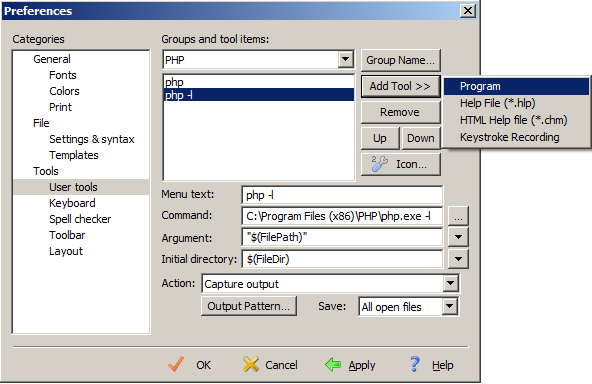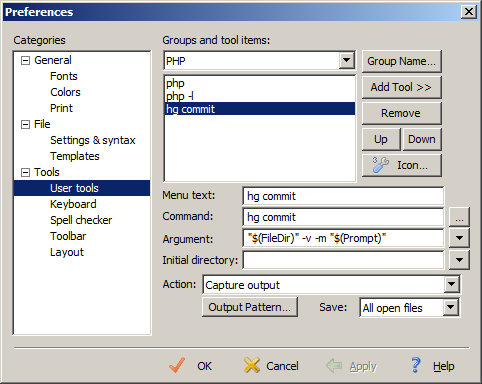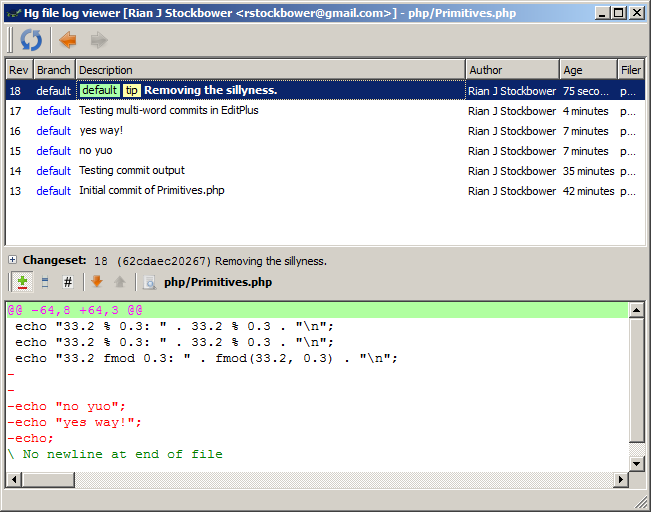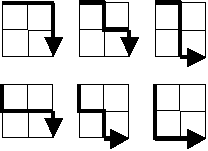Problem 22:
Using names.txt (right click and ‘Save Link/Target As…’), a 46K text file containing over five-thousand first names, begin by sorting it into alphabetical order. Then working out the alphabetical value for each name, multiply this value by its alphabetical position in the list to obtain a name score.
For example, when the list is sorted into alphabetical order, COLIN, which is worth 3 + 15 + 12 + 9 + 14 = 53, is the 938th name in the list. So, COLIN would obtain a score of 938 * 53 = 49714.
What is the total of all the name scores in the file?
Running time:
- File IO: 23ms
- 5163 names sorted: 79ms
- Built the list of names: 154ms
- Total runtime: 209ms
Assessment: I broke my time measurements up so I could see how fast each major piece is. I thought that file IO would be the slowest piece of the equation–I don’t have an SSD–but it isn’t. In fact, no single piece is really the bottleneck. At less than 0.3 seconds, this is, for practical purposes, instantaneous.
If I were to do this problem again–probably in C#–I would approach it the same way, but the code would look a bit cleaner, and certainly less verbose. Using higher-level data structures makes this problem pretty simple.
import java.io.*;
import java.util.ArrayList;
import java.util.Collections;
import java.util.Iterator;
public class Problem022
{
private static ArrayList<String> NameList = new ArrayList<String>();
private static void buildList(String s)
{
long BuildListBegin = System.currentTimeMillis();
String temp = "";
boolean IsName = false;
int i = 0;
while (i < s.length())
{
if (s.charAt(i) == '\"')
{ // Flip the IsName switch if a quotation mark is encountered
IsName = !IsName;
i++; // Move along one character so the quote isn't included in temp
}
if (IsName)
{ // If switch is on, capture characters into temp
temp += s.charAt(i);
}
else
{
if (temp == "")
{ // Without this, a blank line is included
break;
}
else
{
NameList.add(temp);
temp = "";
}
}
i++;
}
long SortBegin = System.currentTimeMillis();
Collections.sort(NameList);
long SortEnd = System.currentTimeMillis();
long BuildListEnd = System.currentTimeMillis();
System.out.println(NameList.size() + " items sorted in " + (SortEnd-SortBegin) + "ms");
System.out.println("buildList() executed in " + (BuildListEnd-BuildListBegin) + "ms");
}
private static String readFile(String filename)
{
/* 1) Read each name beginning with " and ending with " into vector of String
* 2) Sort names alphabetically
*/
long begin = System.currentTimeMillis();
File f = new File(filename);
BufferedReader reader;
String list = "";
try
{
StringBuffer contents = new StringBuffer();
String text = null;
reader = new BufferedReader(new FileReader(f));
while ((text = reader.readLine()) != null)
{
contents.append(text).append(System.getProperty("line.separator"));
}
list = contents.toString();
}
catch (FileNotFoundException e)
{
e.printStackTrace();
}
catch (IOException e)
{
e.printStackTrace();
}
System.out.println("File IO: " + (System.currentTimeMillis() - begin) + "ms");
return list;
}
private static long calcValue()
{
long GrandTotal = 0;
int i = 1;
Iterator<String> itr = NameList.iterator();
while(itr.hasNext())
{
String tmp = itr.next().toString();
int LocalSum = 0;
for (int j = 0; j < tmp.length(); j++)
{
if (tmp.charAt(j) == 'A')
LocalSum += 1;
else if (tmp.charAt(j) == 'B')
LocalSum += 2;
else if (tmp.charAt(j) == 'C')
LocalSum += 3;
else if (tmp.charAt(j) == 'D')
LocalSum += 4;
else if (tmp.charAt(j) == 'E')
LocalSum += 5;
else if (tmp.charAt(j) == 'F')
LocalSum += 6;
else if (tmp.charAt(j) == 'G')
LocalSum += 7;
else if (tmp.charAt(j) == 'H')
LocalSum += 8;
else if (tmp.charAt(j) == 'I')
LocalSum += 9;
else if (tmp.charAt(j) == 'J')
LocalSum += 10;
else if (tmp.charAt(j) == 'K')
LocalSum += 11;
else if (tmp.charAt(j) == 'L')
LocalSum += 12;
else if (tmp.charAt(j) == 'M')
LocalSum += 13;
else if (tmp.charAt(j) == 'N')
LocalSum += 14;
else if (tmp.charAt(j) == 'O')
LocalSum += 15;
else if (tmp.charAt(j) == 'P')
LocalSum += 16;
else if (tmp.charAt(j) == 'Q')
LocalSum += 17;
else if (tmp.charAt(j) == 'R')
LocalSum += 18;
else if (tmp.charAt(j) == 'S')
LocalSum += 19;
else if (tmp.charAt(j) == 'T')
LocalSum += 20;
else if (tmp.charAt(j) == 'U')
LocalSum += 21;
else if (tmp.charAt(j) == 'V')
LocalSum += 22;
else if (tmp.charAt(j) == 'W')
LocalSum += 23;
else if (tmp.charAt(j) == 'X')
LocalSum += 24;
else if (tmp.charAt(j) == 'Y')
LocalSum += 25;
else if (tmp.charAt(j) == 'Z')
LocalSum += 26;
}
LocalSum *= (i);
GrandTotal += LocalSum;
i++;
}
return GrandTotal;
}
public static void main(String[] args)
{
long begin = System.currentTimeMillis();
buildList(readFile("names.txt"));
System.out.println(calcValue());
long end = System.currentTimeMillis();
System.out.println("Total execution time: " + (end-begin) + "ms");
}
}




